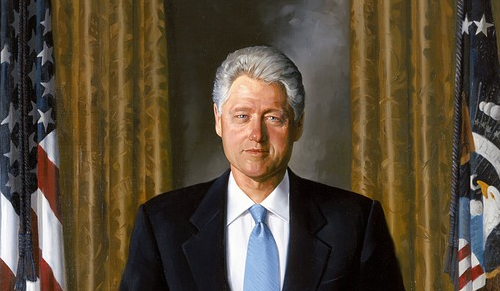As you’ve probably heard one hundred times before this, college is a perfect place to build your professional network. With thousands of classmates in the same life stage as you, the opportunities to make connections are endless.
But, the downside is networking well is easier said than done since it takes conscious effort and time to get better. The upside is that you can certainly develop your networking skills with practice.
Have you struggled to network in college at this point? Do you want to become a better networker?
To improve our networking skills, let’s first examine how Bill Clinton used networking to achieve his goal of becoming President of the United States of America and create his place in history. And then, we will cover how you can practice networking to reach the success you want to achieve.
Networking Case Study: Bill Clinton
Bill Clinton might be the best networker of all time. Besides being the 42nd President of the United States (from 1993 to 2001), he is also popular for his ability to connect with people.
At an early age, Bill Clinton knew he needed a strong network to go far in politics, so that’s what he focused on.
For example, as a 22-year-old, Clinton didn’t waste time getting to know the people around him when he was a Rhodes Scholar at Oxford University.
When he met other students, he would pull out a black notebook to ask the other person’s name and purpose for being at Oxford. Then he wrote down their answers for future reference.
He said his reasoning for doing this came from his desire to go into politics and become the governor of Arkansas.
Clinton also put together a box of alphabetical notecards listing the contact information of friends, teachers, political figures, and other people who he thought could be of help for his future career as a politician.
The index cards totaled 10,000 by the time Clinton lost his bid for reelection as the governor of Arkansas in 1980.
And Bill Clinton is notorious for sending personal letters. Whether he met someone for the first time, stayed in touch with an old friend, or thanked someone for voting for him, Bill Clinton made people feel special through these notes.
It’s clear that Bill Clinton valued the importance of a strong network, so he focused on connecting with people to help himself succeed in politics.
The Networking Results Speak For Themselves
After decades spent developing his personal network and building relationships with seemingly everyone he could, Bill Clinton is now a master people-person.
It’s often said that when you are in a conversation with Clinton, he will always give you his full attention and make you feel like the most important person in the room in that moment. Clinton makes direct eye contact, is completely genuine, and never gets distracted in the exchange.
His charm and persuasion are so strong enough that someone with an initial opposing idea will end up agreeing with him, based on the way he makes them feel listened to and cared for. From my research of people who interacted with Bill Clinton (I’ve never met him), it’s truly remarkable.
It’s safe to say that all the effort Bill Clinton put into building an extensive professional network, paid off when his network got him the White House, twice.
Actionable Steps To Improve Your Networking Skills
Now that we understand the power of networking, let’s take specific steps to improve our networking skills. The ability to connect with people will be a huge advantage in your personal and professional life. To be an effective networker:
- Prioritize helping other people first. The question, “How can I help you?” is so powerful. This unselfish question will be a breath of fresh air in the otherwise me-first world. And the odds are that this person will return the question to you, which will set the foundation for a trusting and mutually beneficial relationship.
- Ask others to do favors for you. Although it’s counterintuitive, studies show that when someone does a favor for you, they need to justify the action so they improve their perception of you. It seems crazy, but it’s true!
- Actively look for networking opportunities. If you’re waiting in line in the dining hall, start a conversation with the person behind you. If you’re early to class, get out of your seat and make small talk with the professor. By continually looking for opportunities, you will become more confident as your network also quickly multiplies.
- Introduce people who should know each other. Do you ever have two people working on similar projects, or with similar goals, that would be a great fit together? Introduce these two people. When they hit it off, they will appreciate you and the value you added.
- Improve your networking knowledge. While this blog post is a good start, I recommend that you build a stronger mental understanding of how to network well. A legendary book on networking is Dale Carnegie’s How to Win Friends & Influence People
.
- Practice the networking concepts you learned. You won’t be as skilled or successful in building your professional network as Bill Clinton, and that’s ok. Start small and make the goal progress. Maybe this week, you write one personal letter to an old employer, friend, classmate, or professor. They will surely appreciate it. And if you don’t put what you learned into practice, the time spent reading this post (and potentially those two books) is basically useless.
Now there’s nothing left to do but go network like the best of them!



